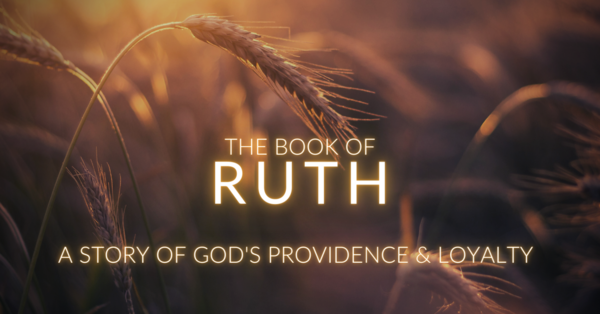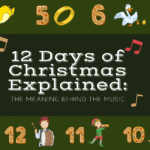The Book of Ruth is one of the most captivating and heartwarming narratives in the Bible. Found in the Old Testament, it stands as a story of love, faith, and divine providence in the midst of hardship. Despite its brevity—only four chapters—the Book of Ruth conveys profound theological and moral lessons about loyalty, redemption, and God’s guiding hand in the lives of His people.
This article explores the Book of Ruth in detail, examining its historical background, main characters, key themes, and enduring significance for readers today. By the end, you’ll gain a deeper understanding of how this ancient story continues to illuminate faith, relationships, and God’s providence in the modern world.
Overview of the Book of Ruth
The Book of Ruth is the eighth book of the Bible and follows directly after the Book of Judges. It narrates the story of Ruth, a Moabite woman whose loyalty and faithfulness not only transform her life but also play a pivotal role in God’s redemptive plan for Israel.
Understanding the Book of Genesis: Creation, Sin, and Redemption
Setting and Historical Context: The events of Ruth occur “in the days when the judges ruled” (Ruth 1:1), a turbulent period in Israel’s history marked by moral decline, social chaos, and spiritual disobedience. Unlike the violent and tragic episodes of the Book of Judges, Ruth presents a peaceful domestic story that highlights individual virtue and divine oversight amid national instability.
Authorship and Date: While the author of the Book of Ruth is unknown, Jewish and Christian traditions often attribute it to the prophet Samuel. The story likely took place during the 12th or 11th century BCE, though it may have been written later during or after King David’s reign. The genealogy at the end (Ruth 4:18–22) connects Ruth directly to David, emphasizing her role in God’s covenantal plan.
Summary of the Story
The Book of Ruth unfolds in four concise yet powerful chapters that move from tragedy to triumph, despair to hope.
Chapter 1: Tragedy and Loyalty
The story begins with Elimelech, his wife Naomi, and their two sons leaving Bethlehem due to famine and settling in Moab, a neighboring nation often at odds with Israel. Tragically, Elimelech dies, and later both sons die as well, leaving Naomi and her two daughters-in-law—Ruth and Orpah—as widows.
In despair, Naomi decides to return to Bethlehem after hearing that the Lord had provided food for His people. She urges Ruth and Orpah to stay in Moab, but Ruth’s response becomes one of the most famous declarations of loyalty in the Bible:
“Where you go, I will go; and where you lodge, I will lodge; your people shall be my people, and your God my God.”
— Ruth 1:16 (NKJV)
Understanding the Book of Exodus: Deliverance and Covenant
Ruth’s steadfast love leads her to accompany Naomi back to Bethlehem, marking the beginning of a new chapter in their lives.
Chapter 2: Providence and Provision
In Bethlehem, Ruth seeks work to provide for herself and Naomi. By divine providence, she ends up gleaning in the field of Boaz, a wealthy and kind man who happens to be a relative of Naomi’s late husband. Boaz notices Ruth’s diligence and kindness and ensures her safety and provision during the harvest.
Boaz’s compassion illustrates God’s providential care—how He works through ordinary people to accomplish His purposes.
Chapter 3: Faith and Redemption
Naomi, seeing Boaz’s kindness, advises Ruth to approach him during the night at the threshing floor and ask him to act as a kinsman-redeemer—a male relative who could marry her to preserve the family lineage. Ruth obeys respectfully, and Boaz praises her virtue and promises to fulfill this role if another closer relative declines.
This chapter reveals Ruth’s faith and humility, as well as Boaz’s integrity and honor in handling the matter according to Jewish law.
Chapter 4: Restoration and Blessing
Boaz publicly redeems Ruth, marrying her and preserving Elimelech’s family name. Ruth later gives birth to a son named Obed, who becomes the grandfather of King David—and an ancestor of Jesus Christ (Matthew 1:5).
The story concludes with joy, restoration, and a powerful reminder of how God weaves redemption into the lives of those who trust Him.
Understanding the Book of Leviticus: Worship and Holiness
Key Themes in the Book of Ruth
a. Loyalty and Devotion: At the heart of Ruth’s story is loyalty—her unwavering commitment to Naomi and to the God of Israel. Her decision to leave her homeland, family, and gods demonstrates a selfless devotion that mirrors true faith.
Ruth’s loyalty stands in contrast to the disobedience and faithlessness that characterized Israel during the period of the Judges. Her example teaches that faithfulness in relationships and responsibilities is a reflection of faithfulness to God.
b. God’s Providence: Though God’s direct actions are seldom mentioned in the book, His presence is felt throughout. From Ruth’s “chance” encounter in Boaz’s field to the lineage leading to David, every event reveals divine orchestration.
The Book of Ruth illustrates that even in times of despair or apparent coincidence, God is at work behind the scenes, guiding His people toward redemption.
c. Redemption and Restoration: Boaz’s role as kinsman-redeemer symbolizes God’s redemptive nature. Through Boaz’s act of redemption, Naomi’s family line is restored, and Ruth’s faith is rewarded. This points forward to the ultimate Redeemer—Jesus Christ, who redeems humanity from sin.
Ruth’s redemption underscores the biblical message that God’s grace extends beyond ethnic or social boundaries. A Moabite woman becomes an essential part of Israel’s salvation history.
d. Faith and Obedience: Ruth’s trust in God and obedience to Naomi’s guidance demonstrate deep faith. She didn’t know what awaited her in Bethlehem, yet she stepped out in faith, trusting in God’s providence. Her story encourages believers to walk in faith even when the outcome is uncertain.
e. Inclusion and the Universality of God’s Love: Ruth’s foreign origin reminds readers that God’s covenant love is not limited by nationality or race. The inclusion of a Moabite woman in the Messianic lineage emphasizes that God’s salvation plan embraces all humanity, not just Israel.
Understanding the Book of Numbers: Journey and Faithfulness
Lessons from the Book of Ruth
- Loyalty brings blessings: Ruth’s steadfast devotion to Naomi ultimately led to divine favor and restoration.
- God works through ordinary events: Even mundane activities, like gleaning in a field, can be part of God’s greater plan.
- Kindness and integrity matter: Boaz’s character demonstrates how righteousness and compassion honor God.
- Faith requires action: Ruth’s journey to Bethlehem and her proactive faith remind believers to act courageously in trust.
- God’s plans are redemptive: No matter the pain or loss, God can bring restoration and joy beyond expectation.
Theological Significance
The Book of Ruth is more than a love story; it’s a divine allegory of redemption and covenantal grace. Boaz’s redemption of Ruth foreshadows Christ’s redemptive work on the cross, where He redeemed humanity from spiritual poverty and restored us into God’s family.
Moreover, the genealogy in Ruth 4 highlights God’s sovereign plan across generations. Through Ruth, a foreigner, God brings forth David—the king after His heart—and eventually Jesus, the King of Kings. This divine lineage illustrates how God’s purposes transcend human limitations.
Modern Relevance of the Book of Ruth
Although set in ancient Israel, the Book of Ruth remains deeply relevant today. It offers hope to anyone facing loss, uncertainty, or feelings of insignificance. It shows that faithful living, compassion, and trust in God can lead to unimaginable blessings.
- For families, it models commitment and intergenerational love.
- For believers, it reinforces the importance of faithfulness and obedience.
- For society, it teaches inclusivity and care for the marginalized—Ruth was both a widow and a foreigner, yet God honored her faith.
In a world where loyalty and integrity are often undervalued, Ruth’s example shines as a beacon of faithfulness and virtue.
Understanding the Book of Deuteronomy: Law and Covenant Renewal
Key Bible Verses from the Book of Ruth
- Ruth 1:16-17 – Ruth’s pledge of loyalty:
“Where you go, I will go… your people shall be my people, and your God my God.”
- Ruth 2:12 – Boaz’s blessing:
“May the LORD repay your work, and a full reward be given you by the LORD God of Israel, under whose wings you have come for refuge.”
- Ruth 4:14 – Naomi’s restoration:
“Blessed be the LORD, who has not left you this day without a redeemer.”
These verses summarize the heart of the narrative—faith, loyalty, and divine blessing.
Conclusion: A Story of Hope and Divine Faithfulness
The Book of Ruth is a timeless masterpiece that reveals how God works through ordinary lives to fulfill extraordinary purposes. It’s a story of love that transcends loss, faith that overcomes fear, and divine providence that transforms tragedy into triumph.
Understanding the Book of Joshua: Conquest and Faith
Through Ruth’s loyalty, Naomi’s resilience, and Boaz’s integrity, we glimpse the heart of a God who redeems, restores, and rewards those who trust in Him. Ultimately, the Book of Ruth teaches that no life is too small, no act too simple, and no faith too insignificant for God to use for His glory.
Understanding the Book of Judges: Leadership and Cycles
Last modified: October 30, 2025





